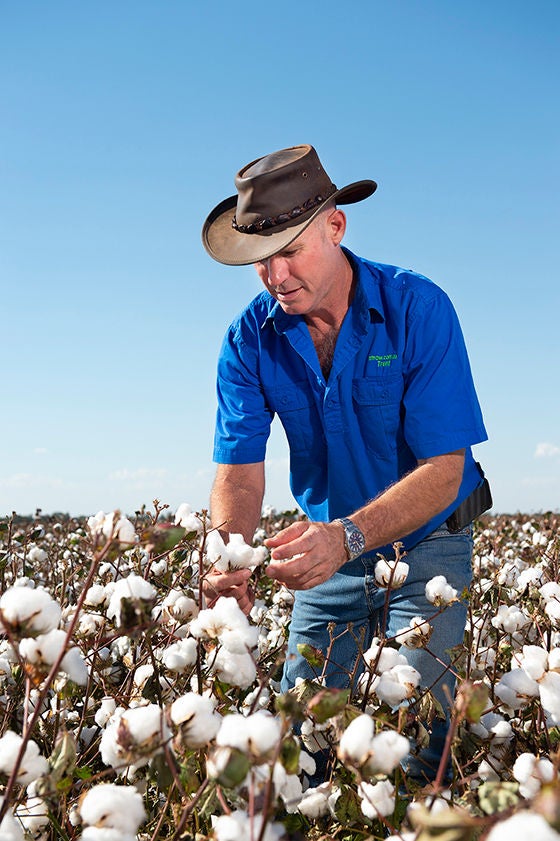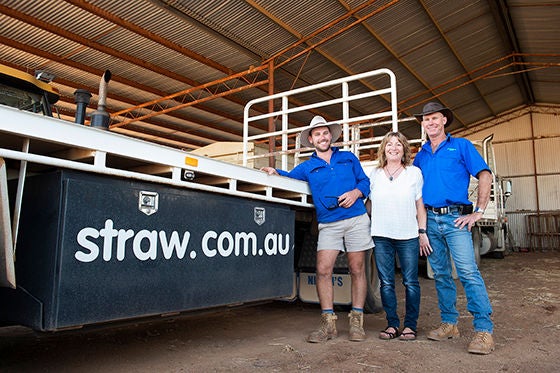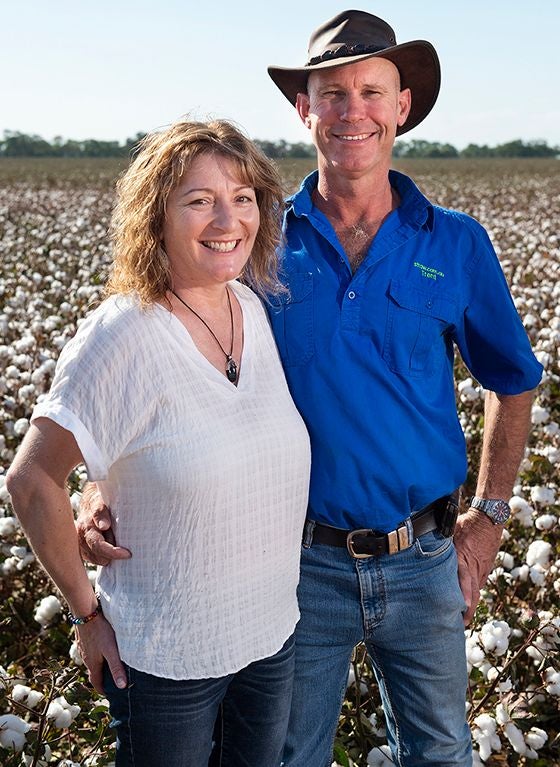Posted by on
29/11/2019
For Trent, Jenny and Chris Gardiner, a lucrative niche market for their high quality rice straw bales and high cotton yields have been two of the major benefits to come out of running their business as a real family affair.
Originally rice growers, husband and wife Trent and Jenny, along with their son Chris, now predominantly grow cotton on 1070 hectares, under a mix of surface water and bore irrigation, across their two farms, one owned and one leased, at Coleambally in the Riverina region.
Trent, who started working on the family farm with his father 38 years ago, has a strong working relationship with his own son, who now runs the farms.
“Chris has been farming with me for 14 years and he officially took over about two years ago, although unofficially it was about six years,” Trent said.
“We have the best father-son relationship I know of, that’s because we trust one another.”
It was Chris’ decision to branch into cotton about seven years ago, a move that Trent described as ‘in hindsight a good thing’.
“He made that work really well and now that’s our main occupation. This last year, we grew 520 hectares of irrigated cotton and ended up with 6,500 bales. We were really pleased with that, and it was probably one of the best yields in the area,” Trent added.
According to Trent, that’s all because of Chris’ farming skills, timely preparation and having both a good agronomist and a good bank manager!
“I’ve had a lot of bank managers in my time, and Andrew Makeham is a stand-out."

“We make a lot of decisions that mean being adaptive is important and Andrew’s very good with that. He just gets it. The whole Rabobank team has been the same, since we started with them in 2001,” Trent said.
In keeping with that need to be adaptive, the Gardiners have stepped away from growing rice.
“We stopped growing it because the water usage on our farms is a bit high, sadly, because rice is a really good crop to grow.”

It was back in the heyday of rice production that Jenny put forward the idea for an online business for their fledgling rice straw bales operation, which ended up generating about a third of the farm’s income at its peak.
“We started making the bales of rice straw in 1987 to see if we could make some money out of something we had as a by-product,” Trent explained.
“It started out small as a bit of a sideline to the business, but in the mid-90s Jenny suggested putting it on the internet. We did that in the late 90s, calling it straw.com.au.
"We were baling about 2000 to 4000 bales a year and, within five years (around 2005), we were up to 110,000 bales a year. It was crazy!
"Straw.com.au is still going today, but we’ve backed off to about 30,000 bales a year of rice straw. About half of that goes to house building and the other half goes for revegetation purposes in national parks, ski resorts and utility companies.
“It’s a niche market with high quality straw bales and we do okay out of it.”
Their straw bale business also saw them through what Trent described as one of the biggest challenges they have faced – the drought years in the first decade of the 2000s.
“Right through the drought, we were doing wheat straw as well as rice straw and that pretty much kept us going through the drought,” he said.
While their main focus now is cotton and straw, the Gardiners also grow wheat and barley as a winter crop for soil health.
“Putting the organic matter back in improves the soil structure. We also mulch the cotton back into the soil – every bit you can put back in there is a help,” Trent said.
While he is looking forward to the day when he can retire and leave the business entirely in Chris’ hands, Trent remains passionate about life on the land.
“We just love farming. It’s fantastic, we wouldn’t be doing it if we didn’t love it,” he said.
Trent carried that passion with him during his long time involvement in a range of industry groups. He was a member of the Irrigators Council for 15 years, including six as deputy chairman; a director of Coleambally Irrigation Cooperative for 24 years, including six as chairman, and branch president of the Rice Growers Association for nine years.
“Being involved gives you the ability to do your part in adapting and changing to meet the challenges that come your community’s way. There’s no point in just sitting back and complaining about it."

